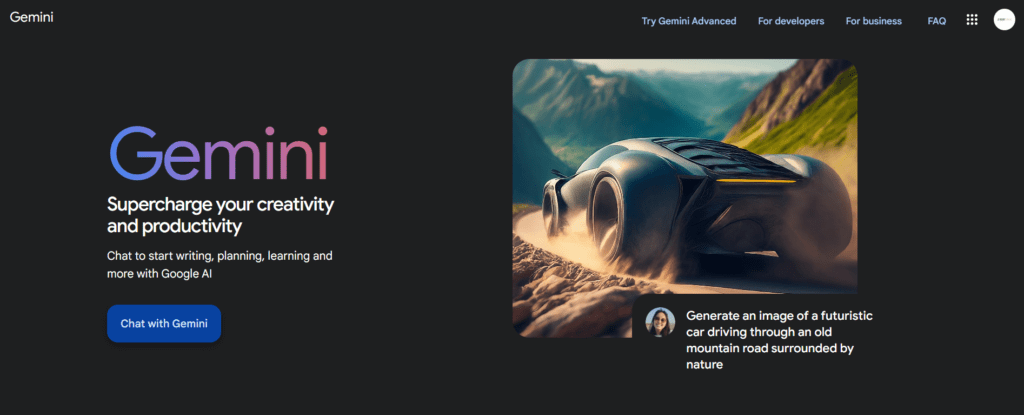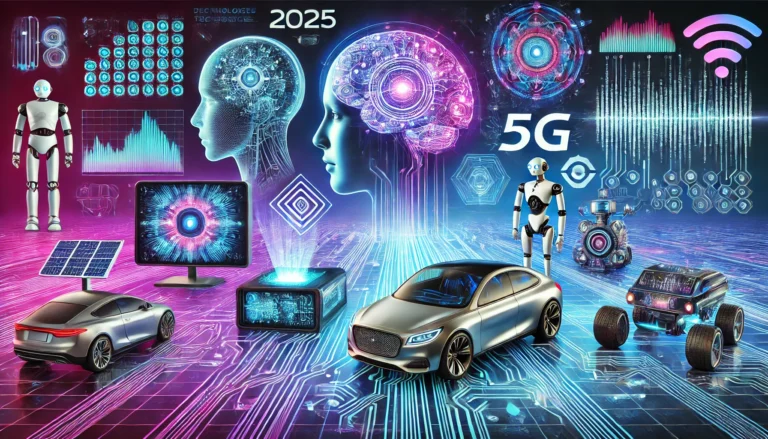
In recent years, artificial intelligence (AI) has evolved rapidly, transforming various aspects of our lives. From virtual assistants like Siri and Alexa to advanced tools like ChatGPT and Gemini AI has demonstrated its potential to generate human-like text. However a critical question lingers that will AI become advanced enough to write good application essays? This question delves into the capabilities, limitations and ethical implications of AI in the realm of personalized writing.
Current State of AI Writing Tools
AI writing tools have come a long way. Platforms like GPT-4 developed by OpenAI and Gemini developed by Google are capable of producing coherent and contextually relevant essays. These tools are able to analyze vast amounts of data to mimic human language patterns and generate content that feels authentic.

Yet, when it comes to application essays, the stakes are higher. Application essays are extremely personal and often reflect an individual’s aspirations and unique experiences. The challenge lies in whether AI can capture these nuances.
Currently AI can assist in:
- Generating Ideas: AI tools can provide topic suggestions and brainstorming prompts. For example a student applying for a medical program might receive suggestions like “Describe a time you demonstrated empathy” or “How have your experiences shaped your interest in medicine?”
- Structuring Content: AI can outline essays, ensuring a logical flow of ideas. For instance, it might suggest an introduction highlighting personal motivation, a body detailing experiences and a conclusion reflecting future goals.
- Editing and Proofreading: Many AI platforms excel at grammar correction and style improvement, such as rephrasing awkward sentences or enhancing vocabulary usage.
However, these capabilities still fall short of crafting a truly compelling and personalized application essay. The essence of such essays often stems from raw human emotion and individuality elements that AI struggles to replicate authentically.
The Evolution of AI and Its Potential
To answer the question, will AI become advanced enough to write good application essays, we must examine the trajectory of AI development. Machine learning and natural language processing (NLP) are advancing at a remarkable pace. Future iterations of AI may include:
- Enhanced Context Understanding: AI could better interpret personal narratives and tailor responses accordingly. For example if an applicant discusses their passion for environmental sustainability, AI might craft a narrative linking personal stories with global challenges.
- Emotion Simulation: By analyzing emotional patterns in text, AI might generate essays that resonate emotionally with readers. Imagine an essay describing the joy of helping a community project—AI could attempt to emulate the enthusiasm and fulfillment of the experience.
- Cultural Sensitivity: Improved algorithms could ensure content is culturally appropriate and contextually relevant. For instance, an essay written for a U.S.-based university might emphasize individuality, while one for a European institution might focus on collaboration and community impact.
If these advancements materialize, AI could theoretically write application essays that meet technical and emotional criteria. However, the question remains whether such essays would feel genuinely human or merely manufactured.
Human Element with Application Essays
Application essays are more than just a writing exercise but also a window of the applicant’s personality, values and aspirations. Admissions officers search for authenticity, creativity and a sense of individuality. Even if AI becomes sophisticated enough to mimic these traits, it may still lack the genuine self-reflection and introspection that come from human experience.
For example, consider an applicant writing about overcoming a significant challenge, such as coping with a learning disability. While AI can generate a well-structured narrative, it cannot truly understand or convey the emotions tied to that experience—the frustration of initial struggles, the determination to persevere, and the pride in eventual success. This gap underscores why application essays remain a uniquely human endeavor, at least for now.
Ethical Considerations
The question, will AI become advanced enough to write good application essays, also raises ethical concerns. If AI tools become capable of crafting persuasive essays, how should they be used? Should applicants disclose AI assistance? Would widespread use of AI in essay writing create an unfair advantage?
These ethical dilemmas highlight the importance of setting boundaries for AI use in academic and professional settings. For example, universities might implement policies requiring applicants to declare AI assistance. Alternatively institutions could emphasize the importance of interviews and other holistic assessment methods to counterbalance potential over reliance on AI. Transparency and honesty should be at the top of any criteria for AI assisted writing.
Practical Uses of AI in Essay Writing
AI might not be yet capable of writing perfect application essays but it can be a valuable tool for applicants. Here are some practical ways to leverage AI:
- Idea Generation: AI can suggest topics and angles for essays, helping applicants overcome writer’s block. For instance, a student applying to a business school might receive suggestions like “Describe a time you led a team” or “How have your entrepreneurial experiences shaped your goals?”
- Draft Improvement: Tools like Grammarly and ProWritingAid can refine grammar, syntax, and style. They can highlight passive voice, suggest more impactful phrasing, or even recommend paragraph restructuring.
- Feedback and Suggestions: AI can provide constructive criticism and highlights the areas for improvement. For example it might suggest adding specific examples to support claims or reorganizing content for better flow.
By using AI as a supplement rather than a replacement, applicants can enhance their writing while preserving their unique voice.
Limitations of AI in Writing Application Essays
Along with advantages AI has notable limitations in crafting application essays. These include:
- Lack of Personal Experience: AI cannot draw from personal life events or emotions. For example, it cannot recount the exhilaration of winning a regional science fair or the lessons learned from volunteering at a local shelter.
- Risk of Generic Content: AI generated essays may lack the originality and depth that admissions officers value. Essays written by AI might include clichéd phrases or overused themes that fail to stand out.
- Over Reliance on Patterns: AI relies on existing data, which might result in repetitive and predictable writing. For example it may over highlight a specific structure or tone that appears mechanical rather than natural.
These limitations remind us of the importance of human creativity and individuality in the essay writing process.
The Future of AI in Personalized Writing
As AI continues to evolve, its role in personalized writing will likely expand. However, whether AI will become advanced enough to write good application essays remains uncertain. The human touch—marked by authenticity, introspection and emotional depth is challenging to replicate.
To maintain a balance, future developments in AI should focus on complementing human creativity rather than replacing it. AI may offer smart comments tailored to particular writing styles or unique ideas for expression of difficult concepts.
By doing this AI can enhance the writing process without compromising on the personalized content.
As AI continues to evolve, its applications extend far beyond writing. Discover more about the different applications of AI across various industries.
Conclusion
The question will AI become advanced enough to write good application essays, touches on the intersection of technology, creativity and ethics. AI has made significant developments in generating logical and contextually relevant text but still falls short of capturing the depth and authenticity required for compelling application essays.
For now the human element remains irreplaceable in crafting essays that resonate on a personal level. As AI continues to advance it will likely serve as a valuable tool for brainstorming, editing and refining content. However the heart of an application essay—a genuine reflection of one’s identity and aspirations will remain a clear human effort. By leveraging AI responsibly and ethically, applicants can enhance their writing process while staying true to their unique voice.
Frequently Asked Questions
1. Can AI currently write good application essays?
AI can assist with writing application essays by providing structure, improving grammar, and suggesting ideas. However, it struggles to replicate the emotional depth, authenticity, and personal experiences that make application essays stand out.
2. How can students use AI responsibly for application essays?
Students can use AI tools to brainstorm ideas, refine grammar, and receive feedback on their drafts. However, the core content, personal stories, and reflections should be their own to maintain authenticity and integrity.
3. What are the limitations of AI in writing personalized essays?
AI lacks personal experience, emotional depth, and creativity. Its outputs can be generic, predictable, or overly formulaic, which may fail to impress admissions officers looking for unique and heartfelt essays.
4. Will using AI to write essays be considered unethical?
It depends on the context and the extent of AI usage. Minor assistance, like grammar correction, is generally acceptable, but submitting an AI-written essay as one’s own work may raise ethical concerns and lead to potential consequences.
5. Could AI eventually replace human-written application essays?
While AI may evolve to create technically proficient essays, capturing the authenticity, introspection, and individuality of a human-written application essay will remain a significant challenge. Human input is likely to remain essential.
Image Credits: FreePik





